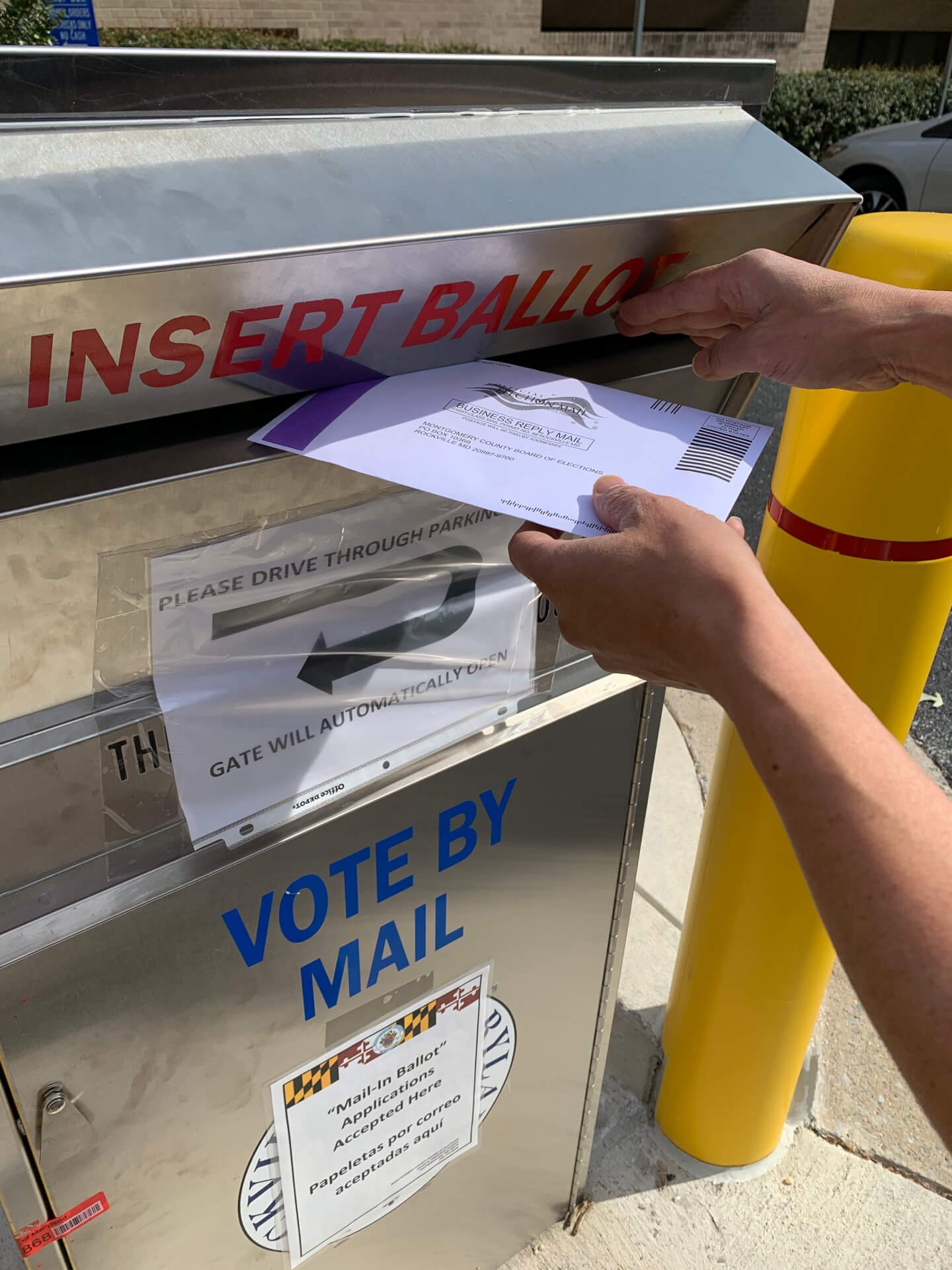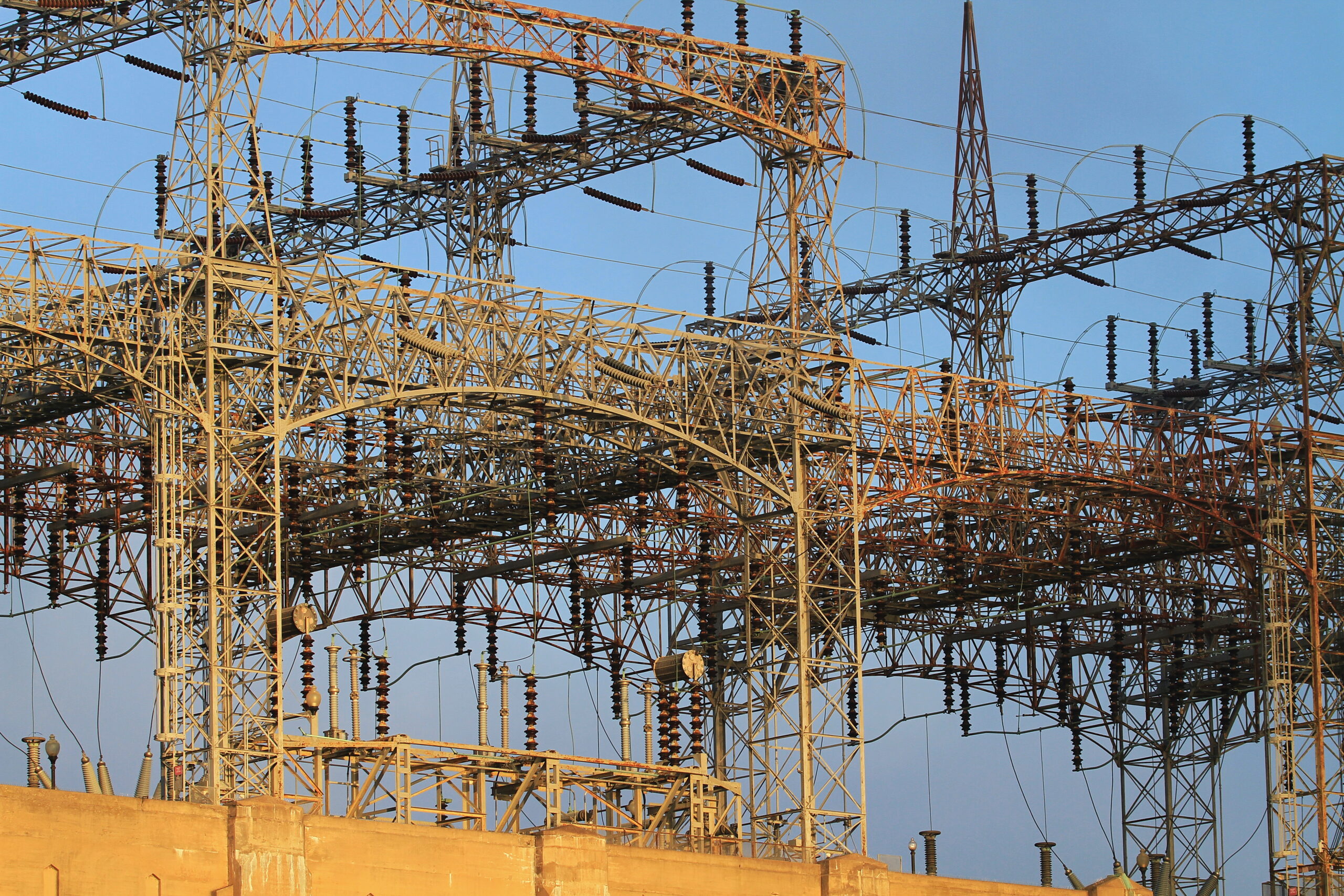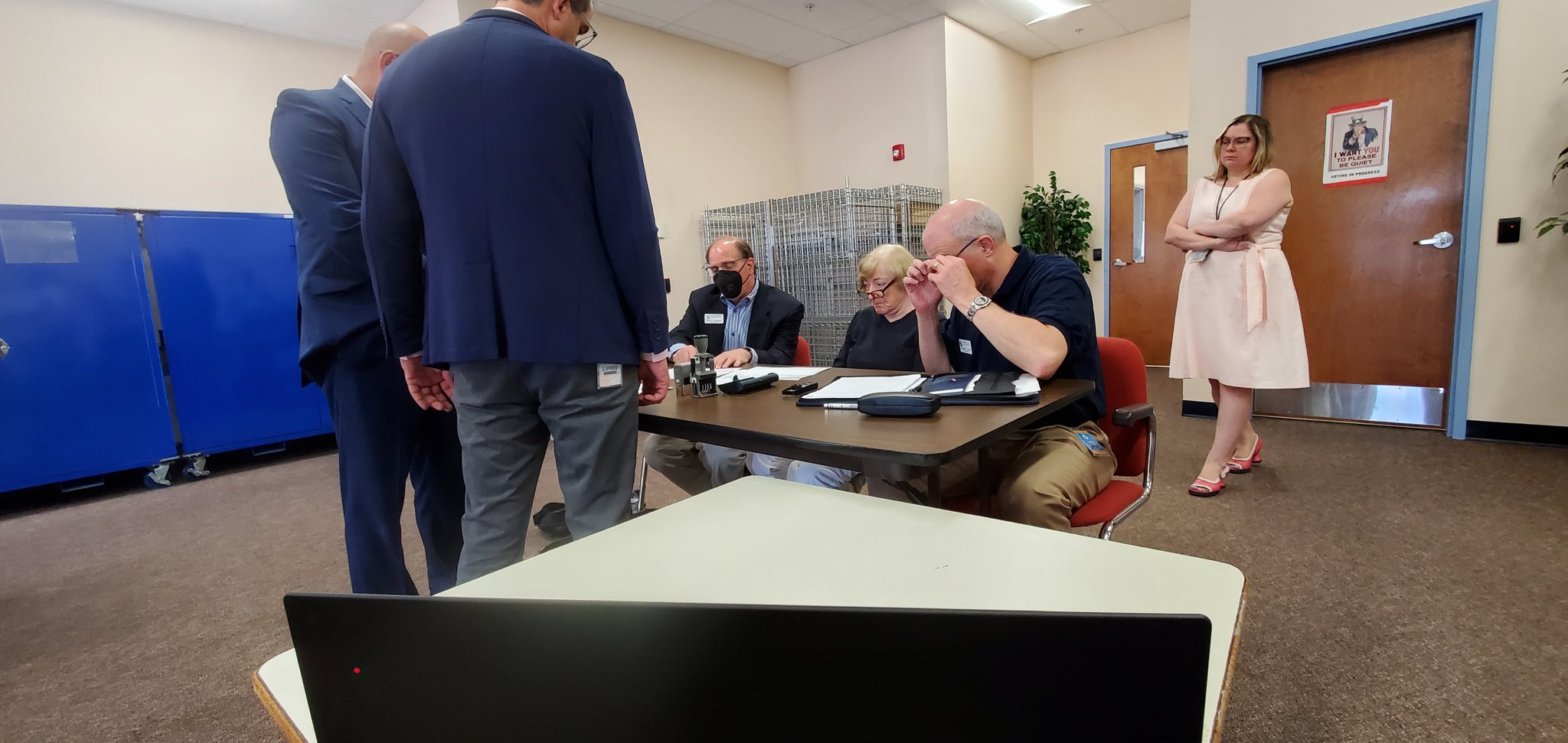With the Election Over, What’s Next for Maryland’s Voting Rights Advocates?

With more than 1.5 million Marylanders voting by mail during the November election, voting rights advocates say calls for expanded mail-in voting are likely to continue after the pandemic.
Joanne Antoine, the executive director of Common Cause Maryland, said she’s already reaching out to state legislators about mail ballot access for future elections ― and she’s seen interest from both lawmakers and voters in keeping expanded mail-in voting.
A total of 1,527,403 mail-in ballots were returned to local boards of elections during the election, according to data from the State Board of Elections.
“I don’t know if we’ll have a bill passed this session, but I certainly think we’ll see something,” Antoine said. “Hopefully we’ll be able to get feedback from legislators and come back with something more solid.”
Of course, mail-in ballots are nothing new in Maryland. The state has long allowed certain voters to use absentee ballots, but never on the scale seen in this year’s primary and general elections.
Antoine said legislators viewed mail-in ballot expansion as a “chore” before the pandemic, but noted that this year’s elections served as a litmus test for increased voting by mail. She’s in favor of using mail-in ballots as a means of expanding access.
Mail-in voting got a rocky start in the state’s June primary, with reports of ballots being delivered to incorrect addresses or arriving weeks later than expected. Registered voters automatically received mail-in ballots during that election, whereas they had to apply for a ballot during the November election.
While the vast majority of ballots were delivered correctly, state election officials came under intense criticism from lawmakers over errors in the June election. Election officials blamed a printing vendor for some of the primary election errors, and enlisted a new printer for the Nov. 3 election.
State Comptroller Peter V.R. Franchot (D), who was particularly critical of election officials after the June primary’s errors, has since apologized after the Nov. 3 election saw relatively smooth mail-in and in-person voting.
Emily Scarr, the director of Maryland PIRG, said the presidential election highlighted the need to modernize the state’s election systems. Scarr said there is “vast room for improvement” in the state’s online voter registration and ballot request systems, which many Marylanders relied on to track their mail-in ballots.
She pointed out that, in order to register to vote online, a prospective voter needs a Maryland state I.D. ― something that students or other eligible voters might not have.
Scarr said her organization hasn’t called for a full shift to mail-in voting, but she’d support giving voters easier access to absentee ballots.
“We thought it was the right call for voting in 2020,” Scarr said. “We’re interested in exploring vote-by-mail and certainly improving our election system …but we have not yet opened the doors to a permanent shift to vote-by-mail.”
Antoine said one of her main priorities will be ensuring that incarcerated Marylanders have access to voting. Voters who are incarcerated in pretrial detention or serving time for misdemeanor convictions are still able to vote under state law, Antoine noted, although advocates have warned that many don’t know their rights.
Lawmakers attempted to pass a bill earlier this year that would’ve required the state’s correction facilities to give eligible voters information about “voter registration, absentee voting, and certain applications and provide an absentee ballot to an eligible voter on request,” although that legislation wasn’t passed.
Antoine hopes the bill will get another chance in the upcoming legislative session. She added that access isn’t just an issue for inmates, but for people with disabilities or elderly voters as well.
She said Common Cause volunteers flagged a number of accessibility issues at polls and drop-boxes during the November election, and added that she wants to make that a part of the conversation around elections going forward.
“Access overall, for those with disabilities and for the elderly, is really something that we want to pay closer attention to,” Antoine said.




 Creative Commons Attribution
Creative Commons Attribution